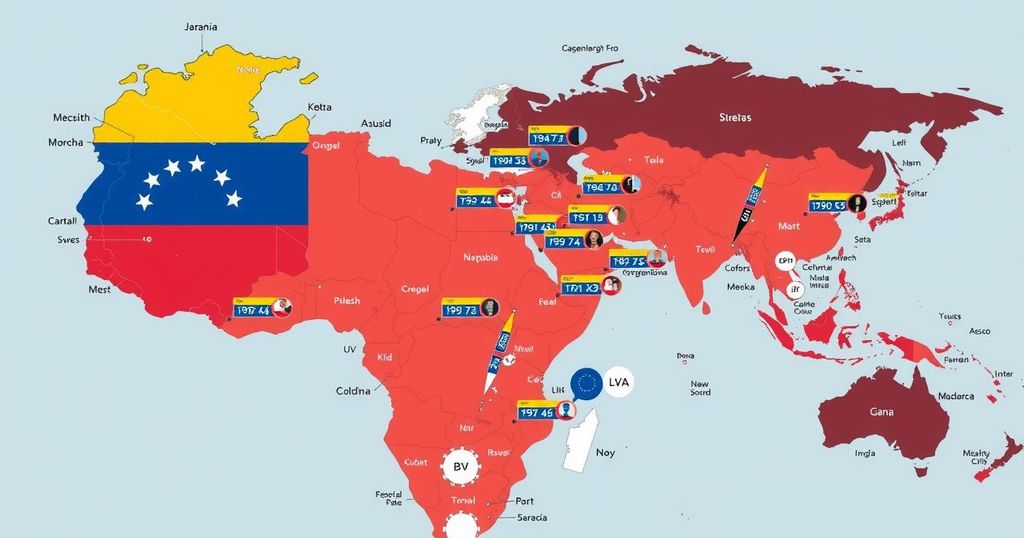Nicolás Maduro was sworn in for a third presidential term in Venezuela amid claims of a fraudulent election. The opposition, represented by Edmundo González, is rallying support from regional leaders who reject Maduro’s legitimacy. Experts suggest that U.S. sanctions have been insufficient to effectively unseat Maduro, recommending a strategy that balances individual sanctions with diplomatic efforts and support for the opposition’s unity.
On January 5, 2025, Nicolás Maduro commenced his third term as Venezuela’s president, amidst widespread allegations of electoral fraud. Analysts point out that the opposition candidate, Edmundo González, was favored in the election, yet Maduro was sworn in after suppressing dissent, including detaining opposition leaders like María Corina Machado. The regional response has been largely unified in rejecting Maduro’s authority, with leaders across Latin America categorically disputing his legitimacy. Experts argue that the Biden administration’s recent sanctions are insufficient to dislodge Maduro, and transformative actions are necessary to support the opposition and encourage a restoration of democracy in Venezuela. The strategies discussed include coordinating regional diplomatic efforts and addressing internal divisions within the opposition to establish a cohesive approach against Maduro’s regime. Balancing sanctions against individuals with measures affecting the oil sector is also essential to ensure that Maduro cannot exploit these resources further. As the situation evolves, the international community must navigate a fine line to assist Venezuela’s population while applying pressure on Maduro’s government.
The political landscape in Venezuela has been tumultuous, especially since Nicolás Maduro’s controversial rise to power, marked by allegations of electoral fraud. In the latest election, opposition candidate Edmundo González emerged as the preferred choice among voters, but Maduro’s regime has resorted to repression and intimidation to maintain control. The Biden administration and various Latin American leaders have condemned Maduro’s tactics, creating a semblance of unity across differing political ideologies. Experts have urged the United States and other nations to reconsider their strategies and provide stronger support for the Venezuelan people seeking democratic governance.
In light of Maduro’s illegitimate assumption of power for a third term, the future of Venezuela hinges on internal and external strategies to restore democracy. Experts emphasize the need for unity within the opposition while urging the U.S. and regional leaders to coordinate diplomatic efforts. The current sanctions imposed are criticized as inadequate, calling for a more impactful approach to support Venezuela’s transition back to a democratic framework. Continued vigilance and strategic policymaking will be crucial for ensuring that the Venezuelan populace’s aspirations for freedom are not further suppressed by the regime.
Original Source: www.atlanticcouncil.org






